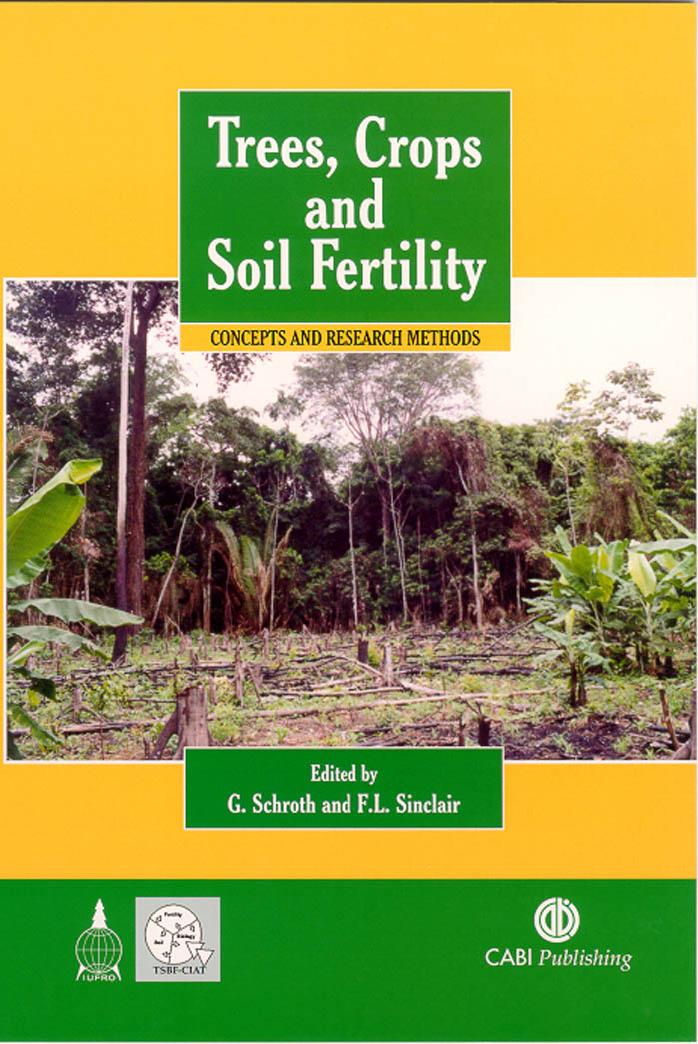An electronic copy of book is available for Library Members
Sign in to view the book
Successful agroforestry requires an understanding of the complex relationship between trees, crops and soils. This book provides a review of both economic and biophysical aspects of soil use and research in agroforestry, with an emphasis on nutrient-poor forest and savanna soils. Key topics covered include the economics of soil fertility management, cycling of water, nutrients and organic matter, soil structure, and soil biological processes.
The book combines synthetic overviews of research results and a review of methods used in research
Review
From the foreword: "The book is written within a particular context - soil fertility development under agroforestry. At first this may seem very specific and thus limited in appeal and application. But over the last decade or so agroforestry research has been one of the most influential in developing new insights into soil biology and fertility and thus provides a very suitable framework for review of progress. Furthermore the influence of trees on soil is profound and of significance beyond agroforestry systems, so the book is likely to be of interest in the wider spheres of agriculture, forestry and ecological sciences."--Mike Swift
Review
From the foreword: “The book is written within a particular context - soil fertility development under agroforestry. At first this may seem very specific and thus limited in appeal and application. But over the last decade or so agroforestry research has been one of the most influential in developing new insights into soil biology and fertility and thus provides a very suitable framework for review of progress. Furthermore the influence of trees on soil is profound and of significance beyond agroforestry systems, so the book is likely to be of interest in the wider spheres of agriculture, forestry and ecological sciences.”
-- Mike Swift
From the foreword: “The book is written within a particular context - soil fertility development under agroforestry. At first this may seem very specific and thus limited in appeal and application. But over the last decade or so agroforestry research has been one of the most influential in developing new insights into soil biology and fertility and thus provides a very suitable framework for review of progress. Furthermore the influence of trees on soil is profound and of significance beyond agroforestry systems, so the book is likely to be of interest in the wider spheres of agriculture, forestry and ecological sciences.” -- Mike Swift
About the Author
and research in agroforestry, with an emphasis on nutrient-poor forest and savanna soils. Key topics covered include the economics of soil fertility management, cycling of water, nutrients and organic matter, soil structure, and soil biological processes. The book combines synthetic overviews of research results and a review of methods used in research. From the foreword: The book is written within a particular context - soil fertility development under agroforestry. At first this may seem very specific and thus limited in appeal and application. But over the last decade or so agroforestry research has been one of the most influential in developing new insights into soil biology and fertility and thus provides a very suitable framework for review of progress. Furthermore the influence of trees on soil is profound and of significance beyond agroforestry systems, so the book is likely to be of interest in the wider spheres of agriculture, forestry and ecological sciences. Mike Swift, TSBF, Nairobi, Kenya
Sub Title:
Edition:
Volume:
Publisher:
Publishing Year: 2003
ISBN:
Pages:
